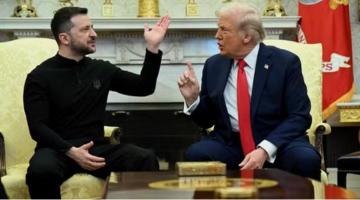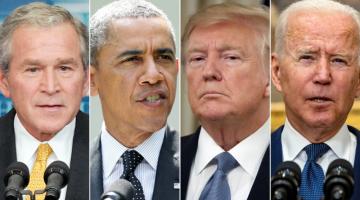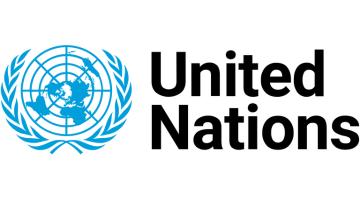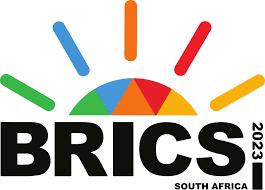Kazan summit rejects unilateralism advanced by the West.
The 16th Annual Summit of Brazil, Russia, India, China and South Africa Plus (BRICS) was held from October 22 to October 24 in the city of Kazan in the Russian Federation.
At present there are nine governments that have officially joined the multilateral organization which are the five original members along with the Islamic Republic of Iran, Egypt, Ethiopia and the United Arab Emirates (UAE).
The Kingdom of Saudi Arabia has been approved for membership by the body although they have not formally accepted. Nonetheless, there was high-level representation from Riyadh in attendance in Kazan led by Foreign Minister Prince Faisal bin Farhan.
The 32-page Final Declaration of the BRICS Summit, “Strengthening Multilateralism for Just Global Development and Security” included 134 points of agreement. Much of the focus in the document revolves around the desire for the democratization of international trade and the dissolution of punitive and coercive measures including sanctions and economic blockades. (
Thirty-six governments were represented at the Summit while 13 of these nations have been invited to become “partner states.” This group of countries poised to join BRICS as partner states are Turkey, Indonesia, Algeria, Belarus, Cuba, Bolivia, Malaysia, Uzbekistan, Kazakhstan, Thailand, Vietnam, Nigeria, and Uganda.
In an unfortunate episode of disunity within South America, the Bolivarian Republic of Venezuela was blocked from joining BRICS as a result of a veto by the Republic of Brazil which apparently cited the criticism by the western imperialist states and their allies in regard to the recent elections that extended the tenure of President Nicholas Maduro. In response, Maduro after returning to Venezuela, proclaimed that no one will halt the Bolivarian Republic in its international efforts.
A statement issued by the Venezuelan Foreign Ministry said in part that:
"The Venezuelan people feel indignation and shame at this inexplicable and immoral aggression by Itamaraty (foreign ministry), maintaining the worst of Jair Bolsonaro's policies against the Bolivarian Revolution founded by Commander Hugo Chávez.”
Brazilian President Luiz Inacio Lula da Silva attended the BRICS Summit remotely after it was announced that he had experienced a head injury.
Interestingly enough, many of the heads-of-state and officials in attendance at the BRICS Summit in Kazan have recognized President Maduro as the legitimate leader of the socialist-oriented state, including host member President Vladimir Putin. Venezuela has thwarted numerous attempts to overthrow its government by successive administrations in the United States since the ascendancy of the former late President Hugo Chavez a quarter-century ago.
134 Points of Unity Confirmed
Some of the highlights embodied within the Kazan Declaration include proclamations related to the necessity of the Global South states to win their right to self-determination and national sovereignty. The objectives of achieving genuine economic growth and development for the majority of the world’s population will not occur absent political independence from neo-colonialism led by the U.S. in the 21st century.
The BRICS Declaration passed in Kazan demands the diplomatic and military recognition of the territorial unity of the Syrian Arab Republic which has been the focus of imperialist destabilization efforts for more than a decade. This same declaration goes on to oppose the recent bombings of Yemen, which has acted in solidarity with the oppressed people of Palestine and Lebanon in the face of genocidal aggression from Tel Aviv coordinated and bolstered by Washington and its NATO allies.
Unlike other gatherings sponsored by the western industrialized states, the BRICS Kazan Declaration is in support of the just struggles of the Palestinians and other targeted nations in West Asia which are subjected to constant military attacks by the State of Israel and its principal supporters in the U.S.
In points 29-30 it emphasizes:
“We mourn the tragic loss of civilian lives in the recent period and express sympathy with all civilian victims and their families. We call for urgent measures, in accordance with international law, to ensure the protection of lives. We reiterate our grave concern at the deterioration of the situation and humanitarian crisis in the Occupied Palestinian Territory, in particular the unprecedented escalation of violence in the Gaza Strip and in the West Bank as a result of the Israeli military offensive, which led to mass killing and injury of civilians, forced displacement and widespread destruction of civilian infrastructure.”
Several points within the Declaration urge the member states and participants to enhance their internal and cross-border financial transactions in a manner which can be beneficial for the peoples of the Global South. Hyperinflation within the developing nations is serving as a major impediment to qualitative growth.
The precipitous decline in the value of national currencies across many sections of Africa, Asia and Latin America stems from the lack of controls over the role and value of the U.S. dollar. Mechanisms for trading in national currencies could provide greater purchasing power for the developing states, which would undoubtedly ease the problems of housing shortages and food deficits.
Point 65 in the Declaration from Kazan goes on to state:
“We reiterate our commitment to enhancing financial cooperation within BRICS. We recognize the widespread benefits of faster, low cost, more efficient, transparent, safe and inclusive cross-border payment instruments built upon the principle of minimizing trade barriers and non-discriminatory access. We welcome the use of local currencies in financial transactions between BRICS countries and their trading partners. We encourage strengthening of correspondent banking networks within BRICS and enabling settlements in local currencies in line with BRICS Cross-Border Payments Initiative (BCBPI), which is voluntary and non-binding, and look forward to further discussions in this area, including in the BRICS Payment Task Force.”
These goals, if implemented, would go a long way in reconfiguring the methods utilized for financial transactions on a world scale. Nonetheless, there is tremendous concern and opposition by the imperialist states to these objectives being advanced by the nations of the Global South.
Much of the animosity exemplified by Washington and Wall Street towards various geopolitical regions of the world is clearly related to the hegemonic designs of the imperialist states. The continuity of these policies is resulting in greater internal, regional and international conflict.
Other Economic Alliances in Recent History
BRICS represents a historical pattern of efforts to build alternatives to the existing world capitalist system. During the period of the Union of Soviet Socialist Republics (USSR), there was the founding of the Council for Mutual Economic Assistance (COMECON).
COMECON was formed in response to the project headed by U.S. Secretary of State George Marshall in June 1947 under the administration of President Harry S. Truman. Popularly known as the Marshall Plan, its actual purpose was to undermine the expansion and viability of socialism which had grown exponentially after World War II.
Founded in 1949, COMECON was designed to build unity and economic integration among the socialist states in the Soviet Union, Eastern Europe and later in other territories such as the Republic of Cuba, Angola, Mozambique, Ethiopia, Vietnam, etc. The organization faded after the overthrow of the socialist states in Eastern Europe beginning in the late 1980s. When the Soviet Union was weakening to the eventual point of collapse in 1990-91, COMECON was dissolved.
Since this time period there has been the formation of the Commonwealth of Independent States (CIS) which consists of those nations and autonomous areas which remain in alliance with Moscow. Even though Russia is no longer a socialist state, the U.S., the European Union (EU), the United Kingdom and Japan are threatened by the reemergence of the county as a major regional and world center of power.
The BRICS Summit differs from COMECON because it brings together states which have both capitalist and socialist economic systems. The world’s second largest economy and leading socialist state, the People’s Republic of China, has pioneered with Russia, the Shanghai Cooperation Organization (SCO) established in 2001, which is now the largest regional grouping in the world. China has also formed in conjunction with the Africa Union (AU), the Forum on China-Africa Cooperation (FOCAC) which has been in existence since 2000.
There is the African Continental Free Trade Area (AfCFTA) headquartered in Accra, Ghana as well which seeks to build deeper economic cooperation between these independent states. Affiliates within the AfCFTA include regional groupings such as the Southern African Development Community (SADC), the East African Community (EAC), Economic Community of West African States (ECOWAS), and the newly formed Alliance of Sahel States (AES), among others.
Consequently, the BRICS Plus Summit is a manifestation of the international movement towards ending the domination of the world’s peoples by international finance capital. This movement inevitably must wage a protracted struggle against the enemies of progress and development.
As the desire for genuine independence and sovereignty intensifies, the incompatibility of these objectives with the forces of exploitation and oppression will become more pronounced.
Abayomi Azikiwe is the Editor of Pan-African News Wire.



















